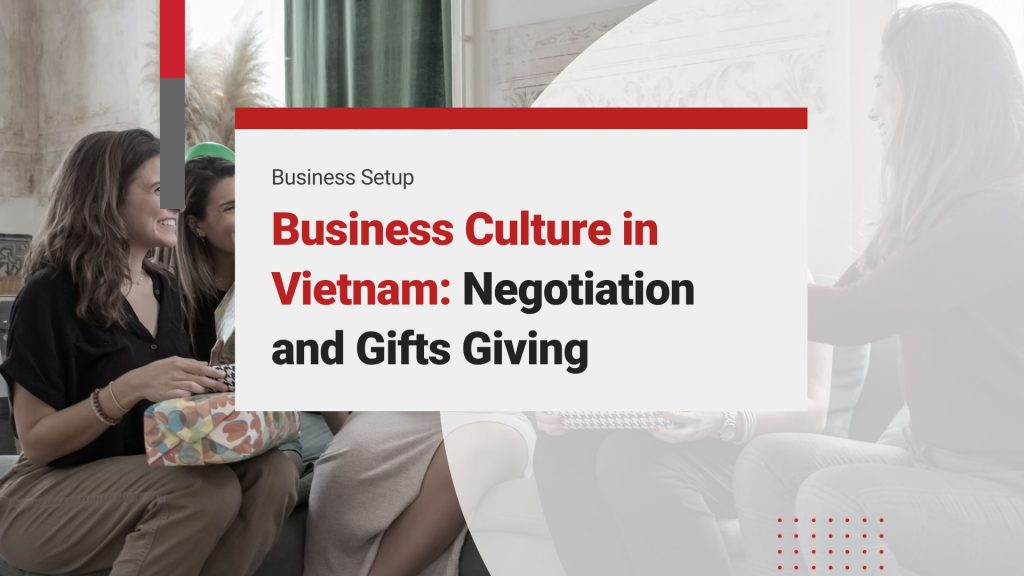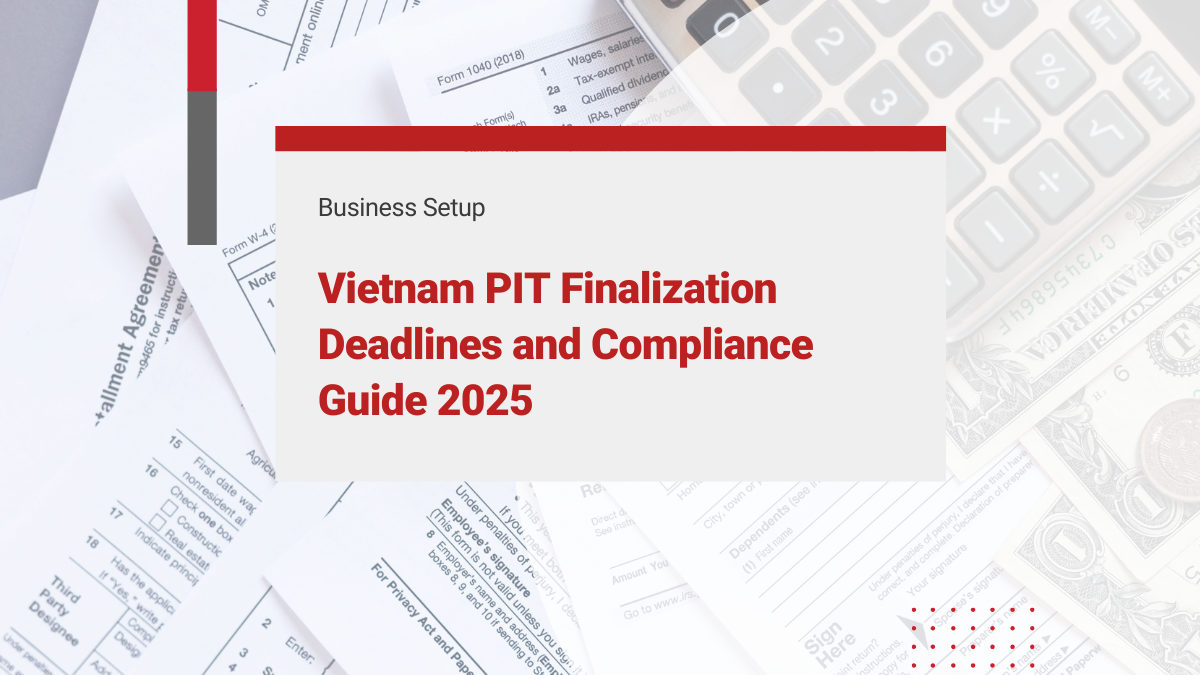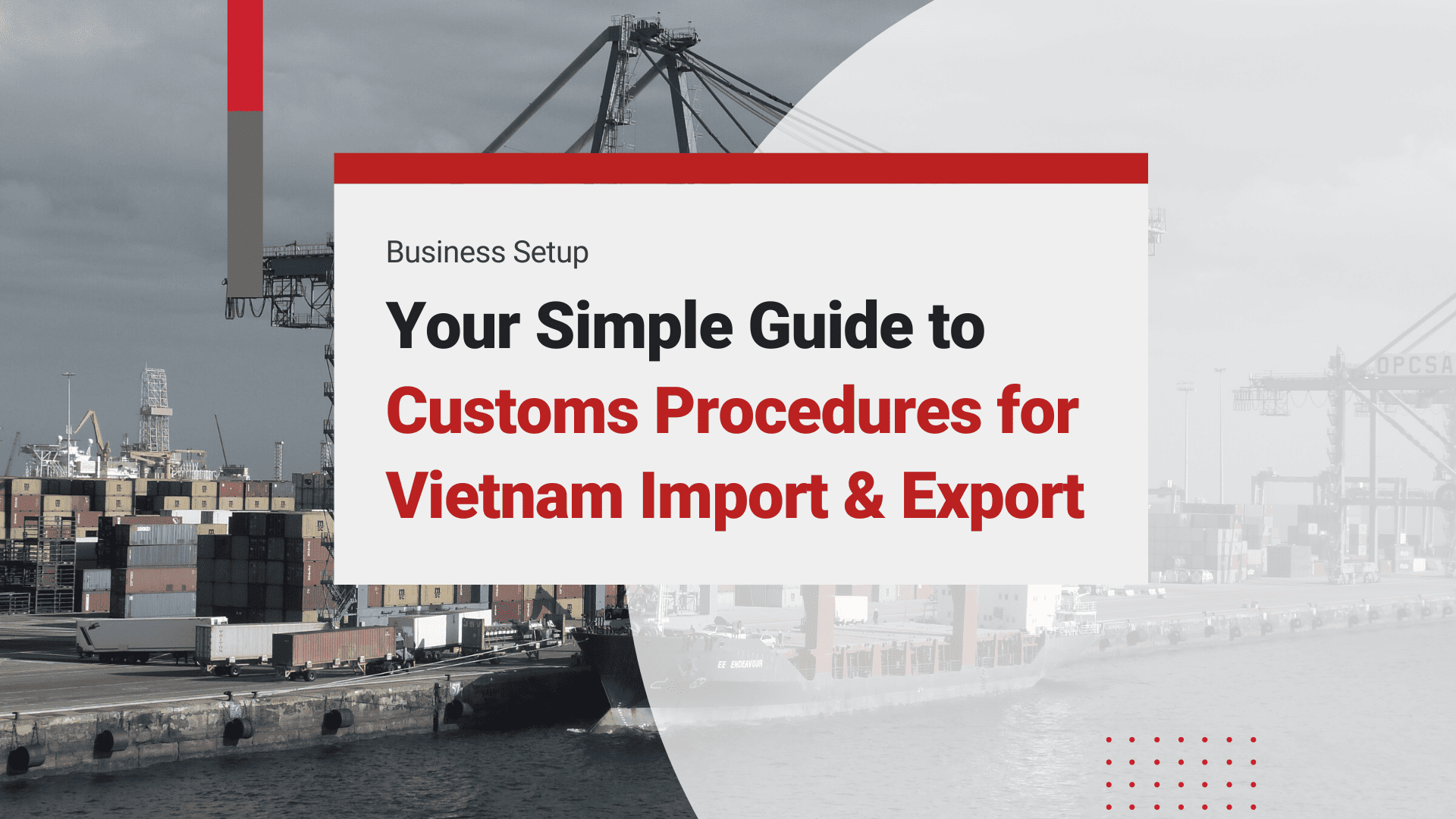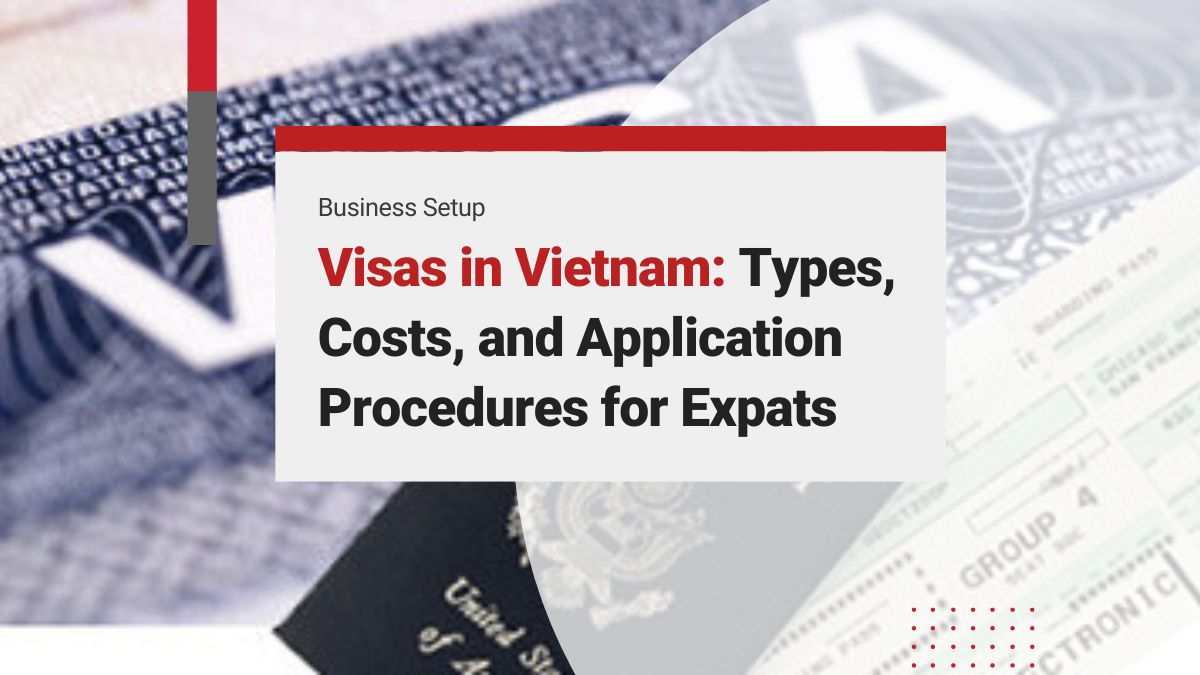Multicultural business relationships while doing business abroad are one of the biggest challenges encountered by foreigners. Before entering the business culture in Vietnam, foreign investors should have an idea of general customs and traditions to facilitate and foster business relationships. However, many investors choose to rely on professional HR services to handle local employment practices and compliance, so they don’t need to learn every aspect of Vietnamese workplace culture on their own
The world of Vietnam’s business culture is far more appealing than anyone would imagine. To avoid cultural hiccups to ensure your successful business in Vietnam, you just have to navigate strategically in this business environment. This article will summarize the nuances of doing business in Vietnam.
Understand the Business Culture in Vietnam
Understanding Vietnamese business customs is crucial for success when conducting business in Vietnam. A failure to appreciate these nuances can lead to significant losses and missed opportunities.
It is essential to recognize that Vietnamese society prioritizes collectivism, with family and community interests typically taking precedence over individual or business considerations.
In this discussion, we will explore additional key elements of Vietnamese business culture. Grasping these aspects will not only deepen your understanding of local customs but also enhance your ability to successfully conclude deals in Vietnam.
Building Relationships Before Business Negotiations
Foreigners with extensive experience in Vietnam often advise newcomers to prioritize building relationships, trust, and mutual respect.
In Vietnam, comfort and respect are generally valued above immediate business transactions. Consequently, negotiations can appear slow, as establishing a rapport with potential clients is a pivotal part of the business process.
Additionally, foreigners need to understand that decision-making in Vietnam often involves extensive consultations and navigating bureaucratic processes. Patience is therefore essential.
Success in Vietnam’s business environment hinges on commitment, effective communication, and relationship-building throughout the negotiation process. The advantages become even more pronounced when both parties share mutual connections with other potential stakeholders.
Gift Giving Etiquette
One effective method to foster a relationship with your Vietnamese business partner is the exchange of small gifts, symbolizing respect and appreciation. It is crucial to ensure that these gifts do not imply corruption or bribery, practices that are unfortunately not uncommon in Vietnam.
Gifts should be thoughtful and appropriate to the occasion and the recipient’s status. Typical presents include items like alcohol, tea, fruits, vouchers, and pre-packaged gift baskets. However, it is important to avoid sharp objects, such as scissors or knives, which are believed to sever relationships, as well as black wrapping paper, which is associated with mourning and considered unlucky. Preferably, gifts should be wrapped in red, symbolizing luck and prosperity, or green, which represents rebirth and renewal.
It is customary not to open gifts immediately upon receipt. Therefore, leave the choice to open the gift later to your partner.
Interested in Doing Business in Vietnam? Get started with InCorp Vietnam’s HR and Payroll Services now!
Business Meetings in Vietnam
There are numerous protocols associated with the conduct of business meetings in Vietnam, and it is advisable to adhere to these guidelines whenever possible.
Punctuality
Like many evolving business environments globally, punctuality can vary in Vietnam, so it’s wise not to expect strict adherence to scheduled meeting times and to remain flexible.
Additionally, avoid confirming meetings too far in advance. It is prudent to reconfirm the meeting the day before, especially if it is scheduled outside your company’s premises.
Importantly, it is advisable to refrain from scheduling meetings close to the Vietnamese New Year, or Tet. During this significant festival, it is common for appointments to be canceled as individuals become preoccupied with preparations and celebrations.
Business Attire
The accepted dress code for business meetings in Vietnam is typically conservative and smart. Men are generally expected to wear standard, dark-colored suits with ties, while women should opt for dresses, blouses with high necklines, or suits.
Women are also advised to wear skirts that fall below the knees and may choose to wear high heels. Although suit jackets are not always necessary due to Vietnam’s hot tropical climate, maintaining neat and professional attire is crucial for making a good impression.
It’s important to note that dress codes can vary by region. For instance, in southern cities like Ho Chi Minh City, business attire tends to be more relaxed and may lean towards smart-casual.
Read Related: 9 Reasons to Launch Your Business in HCMC, Vietnam
Greeting and Meeting
Greetings in Vietnam’s business culture have increasingly adopted Western practices, with handshakes and the exchange of business cards being common.
It is important to remember that during meetings, you should greet each participant with a handshake, beginning with the oldest person in the room. This respects the cultural emphasis on seniority and age.
Seniority and Hierarchy
Vietnamese business culture places a strong emphasis on hierarchy, with respect and deference typically shown to senior employees based on their rank, experience, and age.
In most cases, you will be introduced first to the highest-ranking individual in the company. This person should also be the first to receive greetings in any business setting.
Furthermore, it is important to address individuals by their formal titles, such as “Director”, “Chairman”, or “Manager”. For those without specific titles, using “Mr.”, “Mrs.”, or “Ms.” followed by their names is advisable.
In Vietnamese naming conventions, the surname is followed by the middle name and then the first name. For instance, Mr. Nguyen Nam Thuy should be referred to as Mr. Thuy.
Business Cards Exchange
Business cards are commonly exchanged after the initial greetings. It’s recommended that your business cards be printed in both Vietnamese and English and given to the oldest and highest-ranked members first. Then, move down the line.
While giving out your business card or receiving one from others, make sure that you hold the business card with both hands when facing the person to show your respect.
Company Introduction
After all the small talk and icebreakers, you need to be ready to present and introduce your company. This step is very critical before the Vietnamese will trust you and do business with you. You need to let them know what they want to know about your company and what you can offer as a business partner.
It is best for the presentation slides, if any, to be written in both English and Vietnamese. If you are in a room with few people who speak English, you might want to bring an interpreter or a person who is bilingual with you to the meeting.
Saving Face as it Pertains to Doing Business in Vietnam
The idea of “saving face” is commonplace throughout all of Asia, and Vietnam is no exception, For those readers who are unclear, “saving face” means keeping one’s reputation intact and avoiding one’s respect being lost in front of others. It is often seen as a frustrating stumbling block in doing business in Asia as it can cause a lack of dishonesty, for example when a mistake is made by a third party and they refuse to admit it, instead of losing face. Criticizing someone in front of their peers should be avoided, or done very carefully.
Business Entertainment in Vietnam
Many times you may be invited for business occasions, especially over food and drinks, such as business luncheons and dinners. Even though these events might be less formal, you cannot go wrong when you follow the basic rules of business etiquette in Vietnam. Something to note when you are having dinner in Vietnam is that food is not usually served in individual dishes, but it’s prepared and served to be shared. Sharing food and drink is a very important part of business culture, if you insist on eating your dish, and not cheering with everyone, it can be viewed as rude.
Reciprocation
Most business eat-outs will be held in restaurants, hotels, or a more casual setting such as cafés. Often, your host will arrange everything before your visit. Therefore, as Vietnamese people embrace reciprocation as part of their values, you are recommended to arrange a return dinner as well – with a location that is of the same quality and standard.
The reciprocated dinner or eat-outs are done so to show your appreciation to your host for his or her dinner arrangements earlier. Do take note that negotiations or business are often not discussed during the dinner – it is more likely to happen during luncheons.
Dining Etiquette
When dining in Vietnam with your business stakeholders, dining etiquette plays an important role. Especially for dinners, they usually consist of several dishes and will all be placed on the table. As mentioned previously, you will share these dishes with everyone on the table by taking some from each onto your plate.
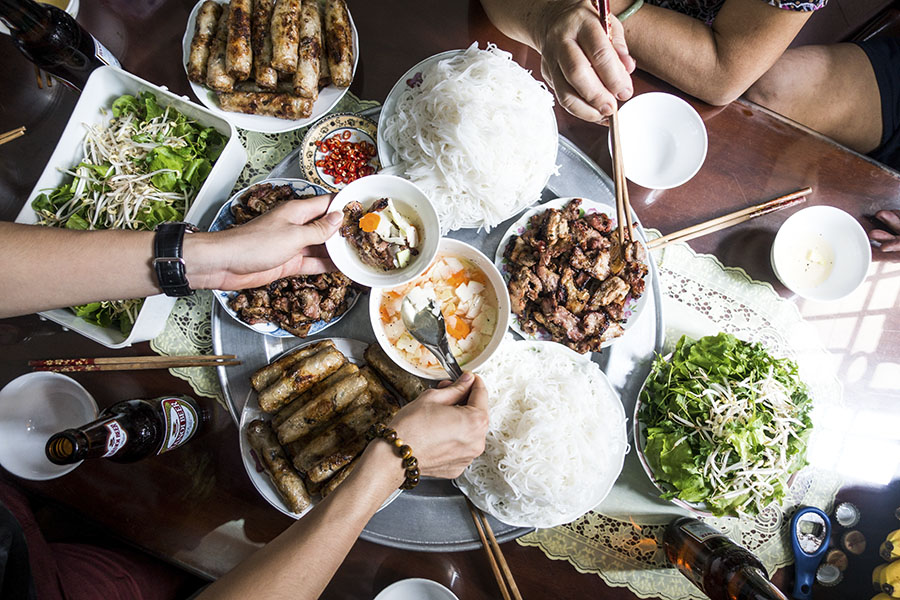
Chopsticks are a part of Vietnamese traditions, and you will always find them in a restaurant. However, some Western or modern restaurants will also provide Western utensils such as spoons, forks, and knives.
Toasts Exchange
Drinking beer, wine, or other liquor during the meal is common as they are served at the same time. If a toast is given, the host is usually the first to raise his/her glass for such a tradition.
When it is your turn to toast your host, you are expected to stand, face the most senior or oldest person in the group, and raise your glass with both hands. Remember, a short and sweet speech will be enough.

clients worldwide

professional staff

incorporated entities in 10 years

compliance transactions yearly
Learn the Right Setup for Business
Expansion in the Vietnam
Frequently Asked Questions
How To Do Business In Vietnam
- To do business in Vietnam, research the local market and legal requirements, establish a legal entity such as a representative office or joint venture, and build relationships through networking and local partnerships. Understanding Vietnamese business culture and regulations is essential for success.
What is meant by business culture?
- Business culture refers to the set of behaviors, values, norms, and practices that characterize how business is conducted within a company or in a specific country. It includes communication styles, decision-making processes, attitudes toward hierarchy, and workplace etiquette. Understanding business culture is essential for effective collaboration and relationship-building, especially in international or cross-cultural business settings.
What is the business culture in Vietnam?
- Vietnamese business culture emphasizes respect, hierarchy, and relationship-building (guanxi). Personal connections and trust are crucial in negotiations, and decisions often involve multiple levels of approval. Formal business attire is expected, and punctuality is valued, though meetings may begin with informal conversation to build rapport. Saving face and showing respect to seniority are important cultural norms during interactions.
